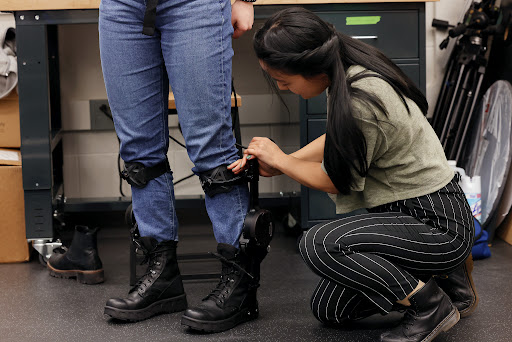Human Systems Integration
Human Systems Integration Program Area

Learn to analyze and support the critical role humans (as operators, designers, developers, and regulators) play in optimizing performance, health, and safety in a wide range of sociotechnical systems. Develop the skills to evaluate human cognitive and physical abilities and limitations throughout the entire process of system design and development to achieve effective human-machine teaming, minimize errors and the risk of injury, illness, or disability in the workplace. Application domains include transportation, healthcare, manufacturing, and military applications where autonomous vehicles, robots, and other technologies play an important role.
Key Topics: Biomechanics, Cognitive Ergonomics, Human-Robot Interaction, Occupational Safety, Physical Ergonomics, and Robotics.
Area Lead: Xi Jessie Yang
Foundation Courses
IOE 434 Human Error and Complex System Failures
Advisory prerequisites: IOE 333, IOE 536, or permission of instructor. (3 credits)
Introduction to a new systems-oriented approach to safety management and the analysis of complex system failures. The course covers a wide range of factors contributing to system failures: human perceptual and cognitive abilities and limitations, the design of modern technologies and interfaces, and biases in accident investigation and error analysis. Recent concepts in the area of high-reliability organizations and resilience engineering are reviewed. Students perform systems analysis of actual mishaps and disasters in various domains, including various modes of transportation, process control, and health care.
IOE 533 (MFG 535) Human Motor Behavior and Engineering Systems
Advisory prerequisites: IOE 333 and IOE 366. (3 credits)
This course is designed to provide a basic perspective of the major processes of human motor behavior. Emphasis will be placed on understanding motor control and man-(machine)-environment interaction. Information processing will be presented and linked to motor behavior. Application of theories to the design of the workplace, controls, and tools will be underlined and illustrated by substantial examples.
Suggested courses to learn more about the human systems integration program area
Physical ergonomics
IOE 438 Occupational Safety Management
IOE 463 (MFG 463). Measurement and Design of Work
IOE 491 Special Topics in Industrial and Operations Engineering: Quantifying Human Motion Through Wearable Sensors
IOE 534 (BIOMEDE 534) (MFG 534). Occupational Biomechanics
Cognitive ergonomics
IOE 430 Global Cultural Systems Engineering
IOE 436 Human Factors in Computer Systems
IOE 437 Automotive Human Factors
IOE 536 Cognitive Ergonomics and Human System Integration
Methods
IOE 465 Design of Experiments.
IOE 491 Special Topics in Industrial and Operations Engineering: Designing for User Experience
IOE 570 (Stats 570) Experimental Design